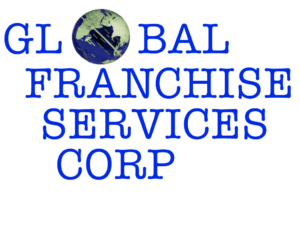How long does franchise ROI take?
People often ask me how long it takes to return your investment on a franchise. When discussing franchise ROI, there are really several separate questions. How long does it take to make a return of your investment, how long to make a return on your investment, and what is an acceptable ROI for a franchise model. Today, we are just looking at the first, but keep in mind all three of these are covered in the book How and Why to Franchise Your Business.
- The amount of the investment
- How you fund the business
- The profitability of the business
Profitability
Lets look at the last one first, to set a baseline. A good rule of thumb for ROI potential in a franchise is a minimum of 20% + equitable salary after two full years in business. To remove variables, we are going to assume that you are investing in a manager-ran business, so you don’t get the equitable salary piece, so now we are just working with the 20% number. So lets use 20% of full investment in year three and beyond as your profitability.
Investment
Next, lets look at the investment. Franchises can range from literally less than $10,000 to in excess of $10,000,000, but the vast majority of franchises range in the $100K-$1mil range, all-in. All-in means all costs to purchase the franchise rights, start the business, and keep it running until it is profitable. To narrow that down even more I would say that around 50% or more of franchises are between $200K-$750K. Lets use a nice round $400K for your investment. Now, based on the answer to question 1 (this paragraph) and question 3 (the last paragraph) we know you should be netting about $80,000/year in your 3rd and subsequent years as an owner of this business, in a semi-absentee roll. So if you invested all cash, your return of investment horizon is right at 7 years. This is very simplistic, of course, because it is assuming 0 profit for the first two years and 0 growth over the next 5, but it works for a quick model.
Funding
Now, for question 2. How did you fund your business? There are lots of options, but the most popular are getting an SBA loan, doing a retirement fund rollover, or going all cash.
Retirement funds
If you do a retirement fund rollover, the calculations on return of investment are frankly too complicated to cover here, because they have to take into account the cost of doing a program (like Benetrend’s Rainmaker program), the lost profits on your retirement money invested in the market (which means you have to predict the market) and the gains by having the company issue profit dividends back to the IRA and having them grow tax-deferred.
All Cash
If you are doing an all cash investment, we already did the calculation above.
SBA Loan
For an SBA loan, you typically need about 30% of the capital yourself. So for your $400K business, you would likely need to take $120K out of your own pocket, and borrow the remaining $280K from a bank with the SBA approval. This is where it gets interesting, because now your investment isn’t actually $400K, its only $120K.
For a typical 10 years at 6% loan, your payments are around $36K/year. Let’s make an assumption here that the amount of extra money you lose in year one of making the payments is covered by some combination of the profit in year two and the growth over subsequent years that we are not otherwise accounting for. Additionally, we’ll say that you start in year three with 8 years left on the loan and no extra cash out of pocket because of it. Your profit has went from $80,000 down to $44,000 after debt servicing. So what is your franchise ROI horizon in this case? $120K cash investment/$44K year profit gives you just under three years for a cash on cash return of investment. Sure, you still owe the loan, but if the business continues as is or grows, the loan payment simply comes out of the business and you are left with your $44K/year profit.
Franchise ROI can be a complicated subject, but this should give you a starting point as you evaluate a business.






